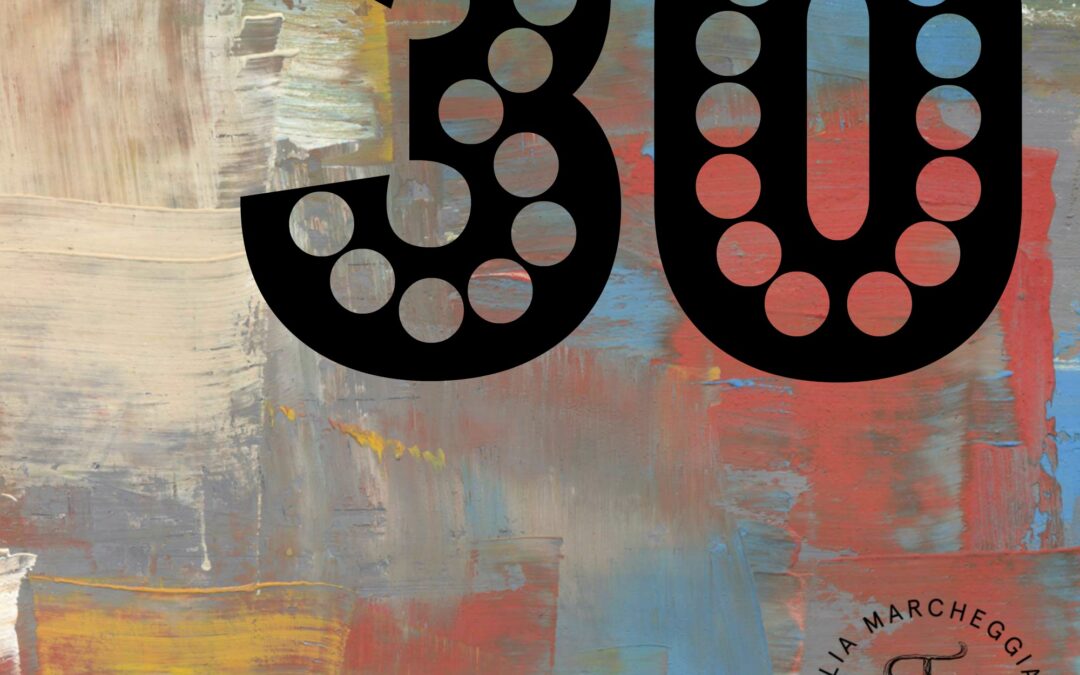
by Dr. Talia Marcheggiani, ND | Feb 23, 2016 | Art, Art Therapy, Balance, Culture, Digestion, Docere, Education, Emotions, Finding yourself, Happiness, Healing Stories, Health, Letting Go, Lifestyle, Listening, Love, Medicine, Meditation, Mental Health, Mind Body Medicine, Mindfulness, Naturopathic Philosophy, Naturopathic Principles, Patience, Philosophy, Psychology, Reflections, Self-care, Self-reflection
 Today, I’m 30, working on my career as a self-employed health professional and a small business owner and living on my own. I’ve moved through a lot of states, emotions and life experiences this year, which has been appropriate for closing the chapter on my 20’s and moving into a new decade of life. I’ve experienced huge changes in the past year and significant personal growth thanks to the work I’ve been blessed to do and the people who have impacted me throughout the last 30 years. Here are 30 things this past year has taught me.
Today, I’m 30, working on my career as a self-employed health professional and a small business owner and living on my own. I’ve moved through a lot of states, emotions and life experiences this year, which has been appropriate for closing the chapter on my 20’s and moving into a new decade of life. I’ve experienced huge changes in the past year and significant personal growth thanks to the work I’ve been blessed to do and the people who have impacted me throughout the last 30 years. Here are 30 things this past year has taught me.
- Take care of your gut and it will take care of you. It will also eliminate the need for painkillers, antidepressants, skincare products, creams, many cosmetic surgeries, shampoo and a myriad of supplements and products.
- Trying too hard might not be the recipe for success. In Taoism, the art of wu wei, or separating action from effort might be key in moving forward with your goals and enjoying life; You’re not falling behind in life. Additionally, Facebook, the scale and your wallet are horrible measures to gauge how you’re doing in life. Find other measures.
- If you have a chance to, start your own business. Building a business forces you to build independence, autonomy, self-confidence, healthy boundaries, a stronger ego, humility and character, presence, guts and strength, among other things. It asks you to define yourself, write your own life story, rewrite your own success story and create a thorough and authentic understanding of what “success” means to you. Creating your own career allows you to create your own schedule, philosophy for living and, essentially, your own life.
- There is such as thing as being ready. You can push people to do what you want, but if they’re not ready, it’s best to send them on their way, wherever their “way” may be. Respecting readiness and lack thereof in others has helped me overcome a lot of psychological hurdles and avoid taking rejection personally. It’s helped me accept the fact that we’re all on our own paths and recognize my limitations as a healer and friend.
- Letting go is one of the most important life skills for happiness. So is learning to say no.
- The law of F$%3 Yes or No is a great rule to follow, especially if you’re ambivalent about an impending choice. Not a F— Yes? Then, no. Saying no might make you feel guilty, but when the choice is between feeling guilty and feeling resentment, choose guilt every time. Feeling guilty is the first sign that you’re taking care of yourself.
- Patience is necessary. Be patient for your patients.
- Things may come and things may go, including various stressors and health challenges, but I will probably always need to take B-vitamins, magnesium and fish oil daily.
- Quick fixes work temporarily, but whatever was originally broken tends to break again. This goes for diets, exercise regimes, intense meditation practices, etc. Slow and steady may be less glamorous and dramatic, but it’s the only real way to change and the only way to heal.
- When in doubt, read. The best teachers and some of the best friends are books. Through books we can access the deepest insights humanity has ever seen.
- If the benefits don’t outweigh the sacrifice, you’ll never give up dairy, coffee, wine, sugar and bread for the long term. That’s probably perfectly ok. Let it go.
- Patients trust you and then they heal themselves. You learn to trust yourself, and then your patients heal. Developing self-trust is the best continuing education endeavour you can do as a doctor.
- Self-care is not selfish. In fact, it is the single most powerful tool you have for transforming the world.
- Why would anyone want to anything other than a healer or an artist?
- Getting rid of excess things can be far more healing than retail therapy. Tidying up can in fact be magical and life-changing.
- It is probably impossible to be truly healthy without some form of mindfulness or meditation in this day and age.
- As Virginia Woolf once wrote, every woman needs a Room of Own’s Own. Spending time alone, with yourself, in nature is when true happiness can manifest. Living alone is a wonderful skill most women should have—we tend to outlive the men in our lives, for one thing. And then we’re left with ourselves in the end anyways.
- The inner self is like a garden. We can plant the seeds and nurture the soil, but we can’t force the garden to grow any faster. Nurture your garden of self-love, knowledge, intuition, business success, and have faith that you’ll have a beautiful, full garden come spring.
- Be cheap when it comes to spending money on everything, except when it comes to food, travel and education. Splurge on those things, if you can.
- Your body is amazing. Every day it spends thousands of units of energy on keeping you alive, active and healthy. Treat it well and, please, only say the nicest things to it. It can hear you.
- If you’re in a job or life where you’re happy “making time go by quickly”, maybe you should think of making a change. There is only one February 23rd, 2016. Be grateful for time creeping by slowly. When you can, savour the seconds.
- Do no harm is a complicated doctrine to truly follow. It helps to start with yourself.
- Drink water. Tired? Sore? Poor digestion? Weight gain? Hungry? Feeling empty? Generally feeling off? Start with drinking water.
- Do what you love and you’ll never have to work a day in your life. As long as what you love requires no board exams, marketing, emailing, faxing, charting, and paying exorbitant fees. But, since most careers have at least some of those things, it’s still probably still preferable to be doing something you love.
- Not sure what to do? Pause, count to 7, breathe. As a good friend and colleague recently wrote to me, “I was doing some deep breathing yesterday and I felt so good.” Amen to that.
- As it turns out, joining a group of women to paint, eat chocolate and drink wine every Wednesday for two months can be an effective form of “marketing”. Who knew?
- “Everyone you meet is a teacher”, is a great way to look at online dating, friendships and patient experiences. Our relationships are the sharpest mirrors through which we can look at ourselves. Let’s use them and look closely.
- Being in a state of curiosity is one of the most healing states to be in. When we look with curiosity, we are unable to feel judgment, anxiety, or obsess about control. Curiosity is the gateway to empathy and connection.
- Aiming to be liked by everyone prevents us from feeling truly connected to the people around us. The more we show up as our flawed, messy, sometimes obnoxious selves, the fewer people might like us. However, the ones who stick around happen to love the hot, obnoxious mess they see. As your social circle tightens, it will also strengthen.
- If everyone is faking it until they make it, then is everyone who’s “made” it really faking it? These are the things I wonder while I lie awake at night.
Happy Birthday to me and happy February 23rd, 2016 to all of you!
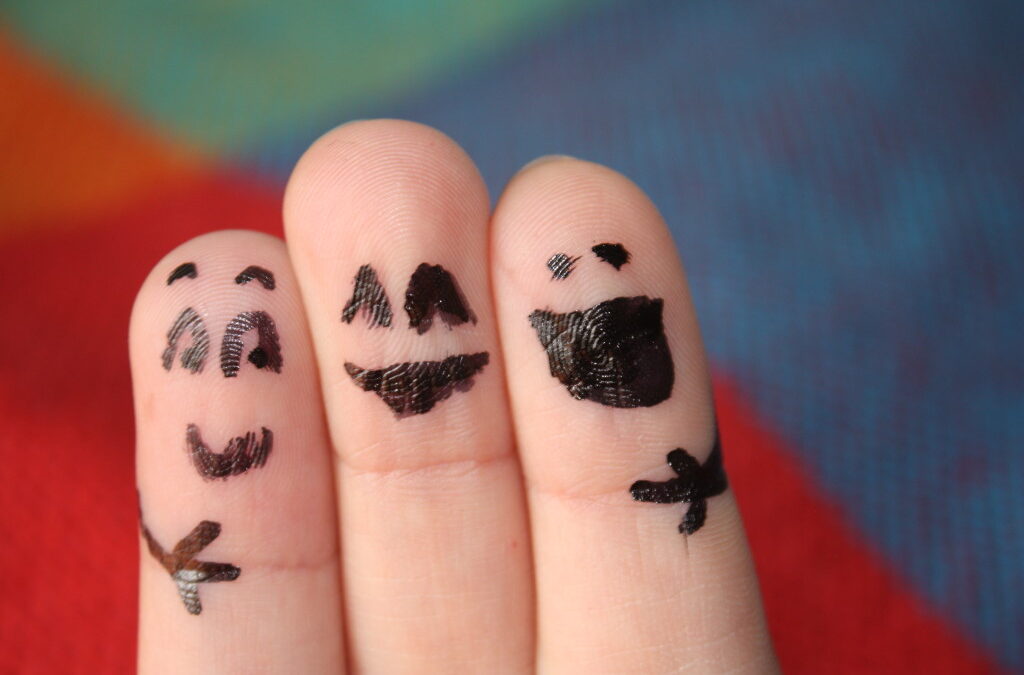
by Dr. Talia Marcheggiani, ND | Feb 16, 2015 | Culture, Emotions, Empathy, Gratitude, Love, Meditation, Mental Health, Mind Body Medicine, Mindfulness, Philosophy, Relationships, Self-care
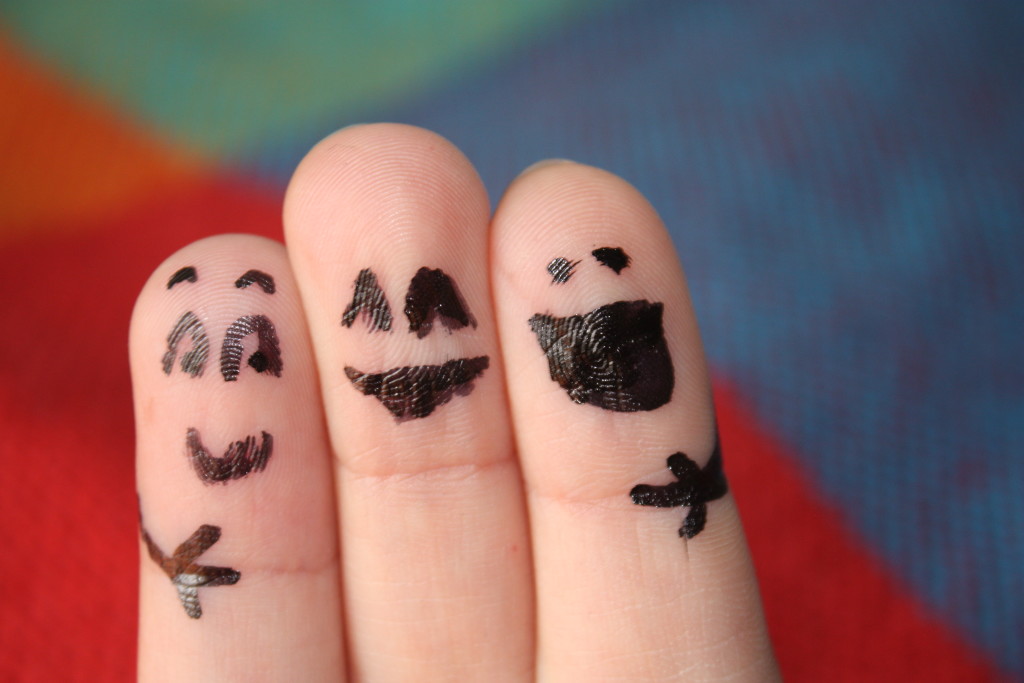 I was in an emotional crisis. My partner and I were fighting. It was my fault and the anxiety I endured from the confrontation was compounded by a deep sense of guilt and shame. I felt powerless as I waited for him to reach out to me so we could fix the problem while at the same time dreading the future confrontation we’d have. I felt isolated. My nerves were shot.
I was in an emotional crisis. My partner and I were fighting. It was my fault and the anxiety I endured from the confrontation was compounded by a deep sense of guilt and shame. I felt powerless as I waited for him to reach out to me so we could fix the problem while at the same time dreading the future confrontation we’d have. I felt isolated. My nerves were shot.
I texted the problem to my friend, A, the psychotherapist, while sitting on the couch in my pyjamas. At the time I remember wanting to include others in my misery, so that people would ask me about it and tell me everything would be alright, that it happens to all of us—it wasn’t that bad—and that I’d get through this thing.
A tells me, “There is nothing you can do now but wait. Waiting takes courage. So, while you’re waiting, don’t forget to self care.”
Self-care: the illusive term we’d often hear tossed around in naturopathic medical school. The hyphenated compound noun referred to anything from applying castor oil packs to getting enough sleep. In my mind, it brings up images of spa-like indulgences: bubble baths, candles, a junky novel—guilty pleasures. True self-care, however, is far from simple self-indulgences. Audre Lorde owns the most powerful definition of self-care I’ve heard, which is this:
“Caring for myself is not self-indulgence, it is self-preservation. And that is an act of political warfare.”
Rather than being a commercial phenomenon—involving trips to the spa, chocolate binge-eating and shopping sprees—self-care is political. Self-care challenges the inequality and oppression of race, gender, class and sexual orientation in society, by providing us with a means to improve our strength and ensure our survival.
When I read Lorde’s quote, I think of my Italian grandmother Nonna. Barely sitting down to enjoy the dinner she had prepared, she dedicated herself to the service of her family’s well-being. Like many other women, especially Italian Catholic women from her generation, she had been taught that any care for herself was selfishness—a symbol of the highest level of vanity and self-obsession. Nonna, like other women of various colours, religions and socioeconomic statuses, was taught to live a life of self-sacrifice. Any attention paid to her own well-being was regarded as an indulgent after-thought. Women are denied a societal sense of self-worth, which is then paradoxically medicated by advertisers telling us to “treat ourselves” to expensive perks because we’ve “earned it”. We are taught not to love ourselves and then instructed how to remedy this lack of self-love with expensive gifts.
Self-care is about finding ways to cultivate and feel deserving of self-love.
True self-care is essential for moving us forward. Because it prioritizes the health and well-being of a person, it affirms self-worth. This has the power to challenge the oppressive forces of racism, misogyny, classism, homophobia and other prejudices. Self-care helps with trauma recovery. It helps heal.
Self-care builds resilience.
We commonly fall into the thought-trap of regarding self-care inaccessible to certain populations; we assume it requires time, money and energy that not all of us have. Katherine from “I Am Begging My Mother Not to Read This Blog” accurately expresses the sentiment with an ironic twist:
“Make time for yourself. After you’ve run that 5K, started a load of laundry, harvested your organic vegetable garden, run to the bank, paid the bills, dazzled everyone with recipes that are cost-effective, healthy, and delicious, thought of something witty and clever to share with your social networking site, caught up on current events and politics, and cleaned all of the house, that special hour set aside just for you is so critical to your well-being.”
While she certainly has a point, something essential is missed in the definition of self-care. Self-care isn’t about shutting out the sound of your screaming children while you pour yourself a martini and fill the tub with hot water. Self-care is about intention, balance, mindfulness, self-awareness and, above all self-love. It is about taking responsibility for one’s own health and well-being. It is about recognizing your physical, mental and emotional needs and ensuring that those needs are met. Self-care is about reducing stress levels. If a pile of dirty laundry is stressing you out, then mindfully washing those clothes while watching the stress leave your body is self-care.
Self-care is an attitude. You can wash your dirty laundry with the frenzy of a thousand cortisol molecules and your mind on the massive list of other things yet to get done, or you can savour the positive feelings of achievement that comes from checking an item off the to-do list. You can breathe the scent of fabric softener, feel the warmth of the clothes that are coming out of the dryer and acknowledge that you are caring for yourself by ensuring you have clean clothes to wear the next day. It’s perspective and intention that creates self-care. That being said, laundry doesn’t necessarily have to be your thing either.
I have a patient who works 6-day weeks. When I asked her what she does for self-care, she looked at me, puzzled. “You know, self-care—how do you take care of yourself?” I tried to clarify. There was still no dawning of realization on her face. I silently chided myself for asking such an insensitive question.
And yet, my patient was taking care of herself. She was drinking more water, eating more vegetables and exercising. She was coming to see a naturopathic doctor and investing in her health. She was doing plenty of self-care; she just didn’t know it.
The SCaR Foundation outlines the BACE method of self-care, which helps us draw awareness to the simple acts we can engage in to care for ourselves.
Body Care involves exercising regularly, eating healthy food, taking medications and herbal supplements as prescribed. It also encompasses getting up to stretch while sitting at a desk, drinking water, getting enough sleep.
Achievement consists of finishing the daily tasks you have on your to-do list, laundry among them. It also includes working towards goals, like studying for a test or doing your work.
Connecting with Others includes spending time with friends, family, or a pet. Social connection is one of the reasons why we’re alive. Being able to reach out to others for help is one of the strongest manifestations of courage and resilience.
Enjoyment encompasses hobbies, favourite pass-times and indulgences. What activities bring joy and happiness to your life?
Self-care should not be pre-determined. When it becomes someone else’s prescription, it is no longer self-care.
Self-care is not always pleasurable. Sometimes it can be quite uncomfortable, such as making the decision to change careers, end a relationship or get in shape. It can be transformative, such as standing up for yourself. Self-love is a revolutionary act and revolutions aren’t always won peacefully. However, learning to listen to the body allows us to determine which decisions are coming from a place of self-love and not anger, hatred or fear.
My particular self-care story ended well. The very act of reaching out to a friend had already begun the process of self-caring (connection). After talking to A, I got up, changed out of my bathrobe, exercised, showered, and put on a homemade face mask of yogurt, honey and avocado (body care). I read fiction on the couch with a hot mug of cinnamon tea (enjoyment). I did yoga, meditated (body care) and went to a friend’s house for lunch, then another friend’s for dinner (connection). I took a course on a subject I love and met other healthcare practitioners while developing a new counselling skill (achievement). A part of me craved isolation, but I intuited that wouldn’t be a restorative act for me at that time and so I forced myself to move on with my activities, knowing that they would improve my positivity and resilience. In the end, because I took care of myself, I was able to face the situation from a place of strength and compassion for both me and my partner. Self-care helped me move past the shame and connect to the most powerful and loving version of myself.
That was my approach to self-care, because it was what I needed. At that time, I needed to feel healthy, strong and social. I needed to be reminded of who I was. Others in similar situations may decide that they need to grieve alone while watching When Harry Met Sally and devouring wine and popcorn, their faces stained with tears. Self-care is about knowing yourself and recognizing and honouring your needs.
Contrary to what we’ve been told, self-care isn’t selfish. It is the highest expression of connectedness. We can’t take care of others if we are not healthy. And we can’t be healthy without taking care of ourselves.
Self-Care Resources:
Methods-of-Self-Care : Free Ebook
Caring About Self-care : Article
Also, check out this Self-Care Journal, by Rachelle Abellar. It has sections for personal affirmations and action plans for when you’re feeling low. You can buy a copy at lulu.com.
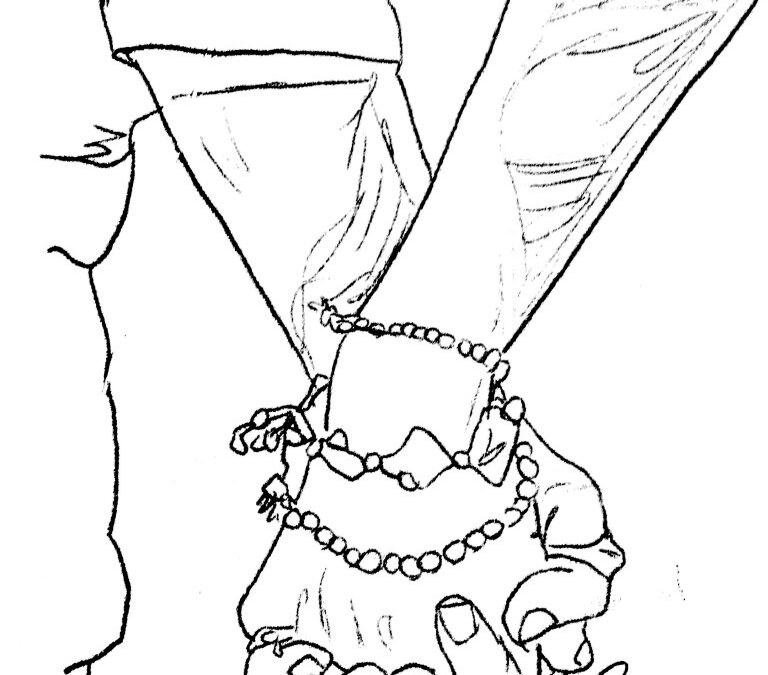
by Dr. Talia Marcheggiani, ND | Feb 2, 2015 | Love, Mental Health, Naturopathic Philosophy, Relationships
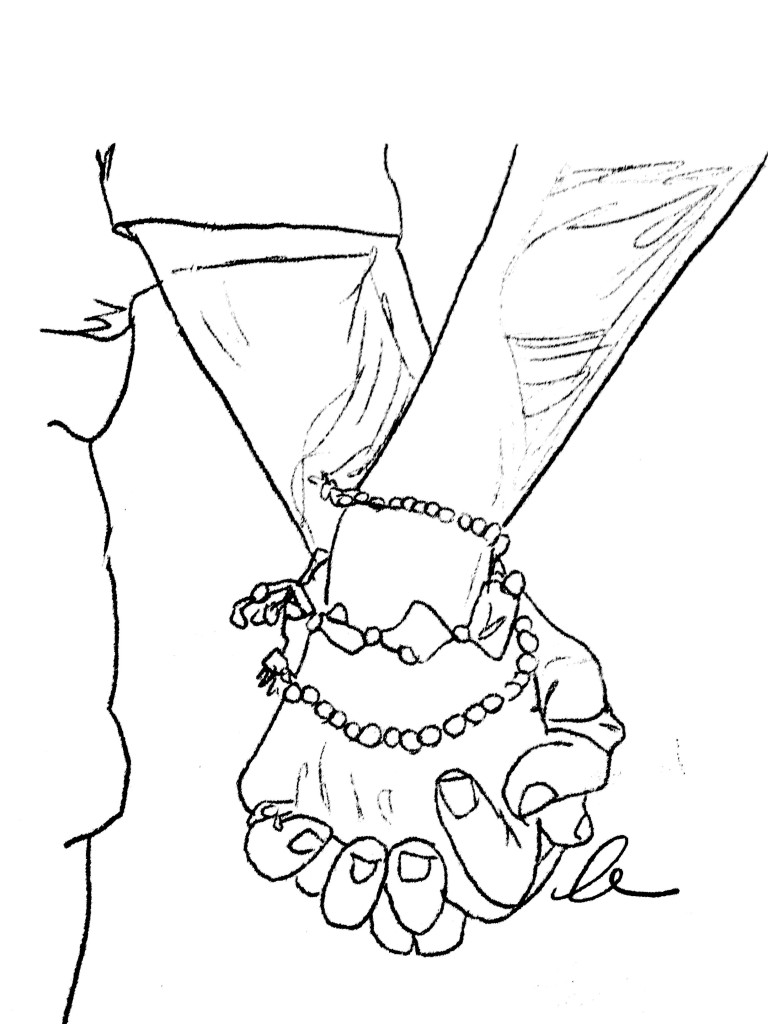 My classmate, A, has a treatment plan for me. He wants me to exercise—not the light walks I’ve been doing, but intense cardio intervals and weight-lifting. He wants me to get more sleep and drink more water. When he gives me the instructions, I feel slightly disappointed; I could have prescribed this plan to myself. In fact, even in telling him the story about my fatigue, I had already predicted what he’d recommend. I could hear myself admitting to not getting enough sleep and to often forgetting to drink water. I just hadn’t thought consciously about those facts for a while. Life and self-deception had kind of gotten in the way.
My classmate, A, has a treatment plan for me. He wants me to exercise—not the light walks I’ve been doing, but intense cardio intervals and weight-lifting. He wants me to get more sleep and drink more water. When he gives me the instructions, I feel slightly disappointed; I could have prescribed this plan to myself. In fact, even in telling him the story about my fatigue, I had already predicted what he’d recommend. I could hear myself admitting to not getting enough sleep and to often forgetting to drink water. I just hadn’t thought consciously about those facts for a while. Life and self-deception had kind of gotten in the way.
In one way, because I had the answer in front of me, and in another way to please A, who I’d have to report back to the following week, I started to exercise. When I got home, I stopped telling myself that a short, light walk would be enough—I had to start sweating. I stopped kidding myself that five hours of sleep a night was enough and that watching TV on my laptop while lying in bed was a substitute for rest. I made the changes and I began to feel better.
I might have had the internal fortitude to do all of this on my own, but it was talking to someone I trusted that gave me the push I needed. I saw my issues and current lifestyle reflected in A’s eyes. The mirror he held up to me gave me the jolt required for me to start taking care of myself.
The healing relationship is something that is not often credited in mainstream medicine. I am taking a course in Motivational Interviewing (MI) in which we learn to tailor our patient interactions to inspire patients towards making healthy changes in their lives. MI helps people move past places of ambivalence because it acknowledges that, while patients have the power and authority to make changes, they also need the therapeutic relationship to start the first steps of change. We’re often told to share our goals with a friend. One reason for this is that we are held accountable. Another reason is that saying the words out loud helps solidify the need to make a change. Telling another person mirrors our needs, wants and ambitions back to us. Through the act of sharing we gain mutual support and are more likely to move forward with our goals.
When I ended a 5-year relationship and entered the dating scene in late winter of last year, I often joked to my friends that dating was “free therapy.” I had to push myself to leave my bubble of comfort and sit across from a stranger. I had to risk being evaluated by someone else. Dating showed me the need to take chances with my heart and express my feelings and vulnerability. I was confronted by my insecurities—feelings of unworthiness, worry that I wasn’t attractive enough and a deep-rooted fear of rejection and abandonment. I was forced to stare these fears down, acknowledge their existence and work to move past them. This experience helped me become a better person and a better doctor, improving the relationships I have with my patients and coworkers.
Relationships expose our wounds. After all, the human experience is formed in relationship. Even withdrawn introverts rely on others for their daily experiences. Hermits living in the woods are reliant on relationships, or lack thereof. Their identity, forged by their need to escape from others through the conscious rejection of relationships, still reflects their intersubjectivity. Our earliest relationships establish our deeply held beliefs about ourselves and the world. Everything we learn about ourselves is through relationships with other people.
I read this wonderful quote in an article recently,
“Our wounds were formed in-relationship and can only be healed in-relationship. No amount of meditation on a mountain can solve your mommy issues.”
Healing, whether physical, mental, emotional or spiritual, must be done through interpersonal connection. Relationships help expose our wounds while showing us what we can do to address them. While we ultimately heal ourselves, we intuit that the healing process needs the hands of another. Through my last relationship I’ve seen my insecurities held up in front of my face. The need for developing my sense of self-worth, self-love and self-acceptance began to cry out loudly, when reflected through the prism of the relationship I was in. When we’re alone it is easy to ignore these callings—there is no one beside us, challenging us to evolve, and it becomes easier to settle into our ways.
Self-work cannot be done alone.
Healing requires reflection, mirroring, empathy, storying, support and, sometimes, accountability. It requires more than just expertise, self-will and determination. When working on ourselves interpersonally, we are forced to see ourselves through the eyes of another human being and develop the darkest, hidden parts of ourselves, becoming whole.
Therefore, true healing cannot be done outside of relationship. We need someone to share and rewrite our stories with. In some cases, it can be a partner, family member or friend. In others, the ears, eyes and hands of a trusted professional can help you move to the next level of conscious healing and self-evolution.
In short, Googling your symptoms can’t heal you.
I love this quote from Julie Delpy’s character in the movie Before Sunrise:
“If there’s any kind of magic in this world it must be in the attempt of understanding someone sharing something. It’s almost impossible to succeed, really, but who cares? The answer must be in the attempt.”
Healing is in the attempt.
by Dr. Talia Marcheggiani, ND | Jan 12, 2015 | Family, Finding yourself, Healing Stories, Health, Letting Go, Love, Mental Health, Mindfulness, Philosophy, Poetry, Relationships, Self-care, Self-esteem, Self-reflection
I’m grateful for endings
that merge into new beginnings,
karmic cycles and their painful lessons
and excruciating yearly rituals that often end
in transformations.
I’m grateful for long late-night horizontal conversations
tiny loving gestures
unity
and the Universe announcing her timing
loud and clear.
For experience.
For strength and resilience
reflected
in the mirror.
For friends and family who linger
around the corner
ready to reemerge
when you call them.
For cold winter winds that bring loss
and change
and propel us on.
For memories that needn’t be analyzed;
they’re simply gifts to cherish and remember.
The winter winds push us
on through the frigid night
into spring.

by Dr. Talia Marcheggiani, ND | May 19, 2014 | Emotions, Love, Relationships, Writing

There is nothing wrong with living on flat ground. In fact, it can be quite gratifying and liberating. You can walk in whichever direction you choose: right, left, east, west, diagonally. Flat ground is safe. It’s familiar. However, after a while, it becomes inevitable that you’ll want to experience the world from different vantage points. You’ve heard that there is real beauty up there, above the clouds. And that’s when you decide to start mountain climbing.
(more…)
by Dr. Talia Marcheggiani, ND | Jan 13, 2014 | Gratitude, Happiness, Health, Letting Go, Love, Mental Health, Mindfulness, Psychology
Losses and pivotal life changes can make us feel as if our world of comforts and familiarity is crumbling away beneath us, leaving us with a sense of emptiness and shaken emotional instability. However awful these times may seem, they can also offer us the gift of intimately knowing ourselves, and the opportunity to grow and learn. We are at our most vulnerable, our most creative and, in a sense, our most awake and alive during times of emotional duress. Our sensitivity is heightened, and although many of these feelings are extremely painful, our ability to experience this pain also leaves us open to the possibility of truly feeling everything the world has to offer: excruciating suffering but also the promise of immense joy.
When we think of healing we often think of taking medications, receiving treatments or long courses of therapy. We often overlook the importance of the little, comforting things we can do to help nurture ourselves through painful times. These rituals and small comforts are powerful healing facilitators; we only need the courage to turn to them and to trust that we are on the right path.
(more…)
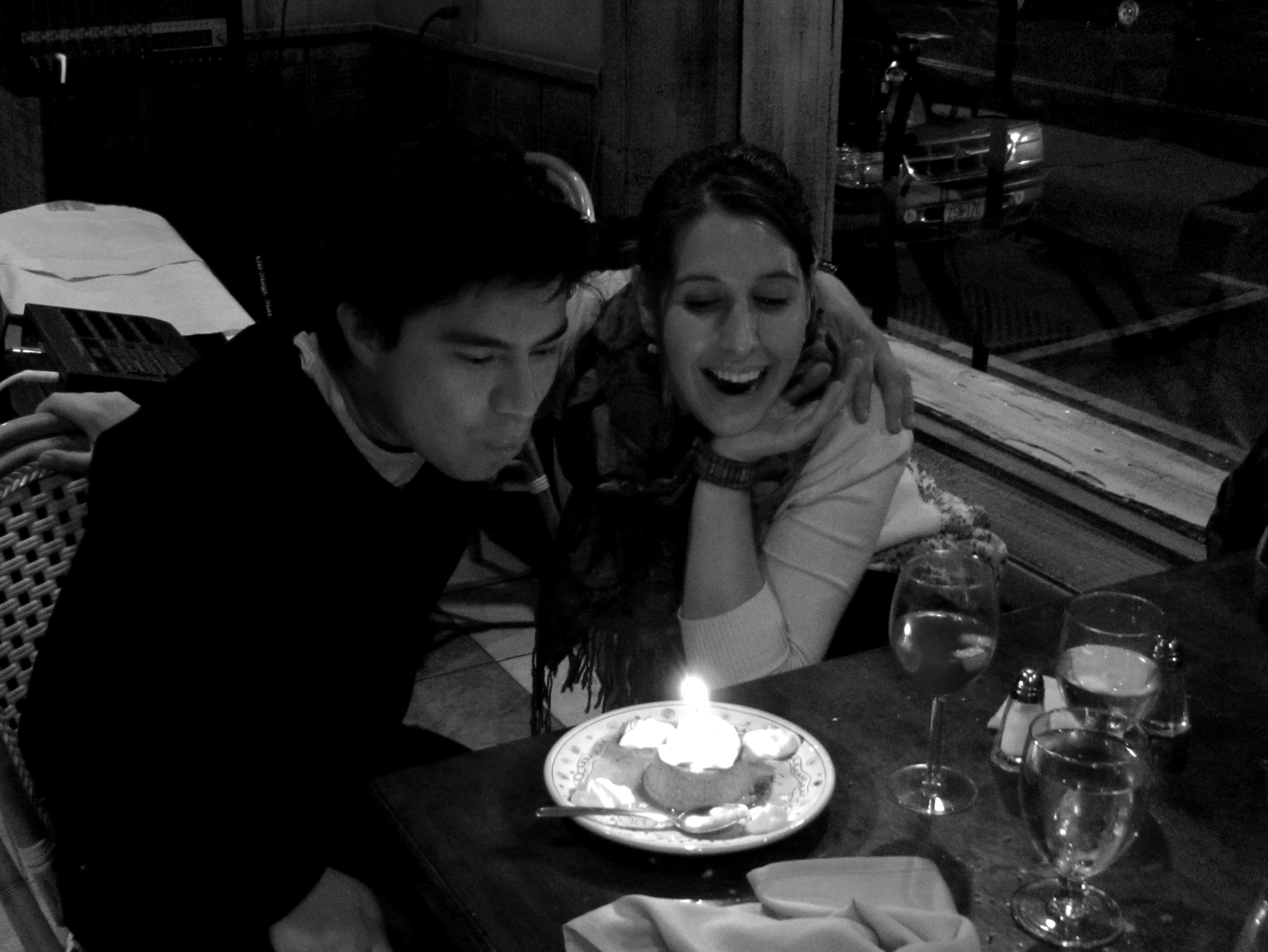
by Dr. Talia Marcheggiani, ND | Sep 27, 2012 | Colombia, Long Distance, Love, Relationships

I have been in a long-distance relationship with J since August 2010. Here is my reflection. It’s a rollarcoaster of emotions – the oscillation between being OK with it – the “it’s better this way, we’re both so busy we wouldn’t survive if we were physically together” – and complete dejection and despair.
(more…)

by Dr. Talia Marcheggiani, ND | Mar 14, 2012 | Art, Beauty, Colombia, Culture, Finding yourself, Gratitude, Healing Stories, Love, Photography, South America, Travel, Travel Stories
 One of the realities of human suffering is the sensation of time passing us by. It is one of the pains of being alive and aware of it. Oftentimes we live on autopilot, bored with our present circumstances and rushing through life to the next good thing we have scheduled. When times are good we can experience the anxious feeling of attachment, knowing that, like all good things, it can’t possibly last forever.
One of the realities of human suffering is the sensation of time passing us by. It is one of the pains of being alive and aware of it. Oftentimes we live on autopilot, bored with our present circumstances and rushing through life to the next good thing we have scheduled. When times are good we can experience the anxious feeling of attachment, knowing that, like all good things, it can’t possibly last forever.
(more…)
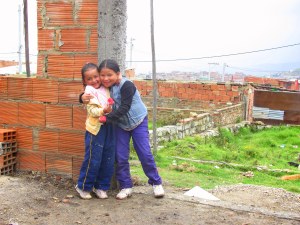
by Dr. Talia Marcheggiani, ND | Mar 8, 2012 | Art, Balance, Colombia, Culture, Empathy, Family, Healing Stories, Listening, Love, Naturopathic Philosophy, NGOs, Photography, Psychology, South America, Travel, Travel Stories, Volunteering, Volunteering Abroad
 As mentioned before, naturopaths are not necessarily defined by our toolbox of modalities. What, then, does define us as a profession? As we witness a rise in the demand for complementary and alternative medicine, and with it, the rise in something called the “Holistic Medical Doctor”, what sets naturopathic doctors apart?
As mentioned before, naturopaths are not necessarily defined by our toolbox of modalities. What, then, does define us as a profession? As we witness a rise in the demand for complementary and alternative medicine, and with it, the rise in something called the “Holistic Medical Doctor”, what sets naturopathic doctors apart?
(more…)
by Dr. Talia Marcheggiani, ND | Mar 5, 2012 | Addiction, Balance, Breath, Emotions, Empathy, Exercise, Finding yourself, Gratitude, Love, Meditation, Mental Health, Mindfulness, Psychology
I don’t know about you but the word “gratitude” carries a fair amount of guilt and resentment for me. Being citizens of privileged countries like Canada, we’re constantly told that we should be grateful, as in, “finish your food, there are starving children in Africa!”
This realization that we have certain things that others do not often results in guilty feelings about the facts of life that we’re not responsible for (directly) and cannot change. Gratitude, at least for me, has associated feelings of injustice and helplessness. It is almost as if that by admitting I am grateful for my food, my home, my family, my friends, etc., I am acknowledging the fact that I, more than anyone else, did not earn or deserve them and brings to light the possibility that these things can be taken from me.
When we talk about meditating on or cultivating a feeling of gratitude, the opposite is usually understood. We seek to cultivate gratitude precisely for the reason that we are, in fact, not grateful and are focusing on the negative aspects of our lives, the things we are not grateful for.
However, gratitude is not about guilt-trips or comparisons. It’s simply recognizing that we are all fortunate in our own way, helping us to see the full half of our glasses.
A classmate once showed a group of students and I a powerful and engaging visualization exercise based on recognizing the things to be grateful for in our lifes. I often struggle in meditation, especially the stricter Vipassana or Zen meditations, in which we are told to calm and focus the mind. It seems that more I try to focus the more I realize I am trying, pushing to make something happen and then the more I try not to try. And try not to try not to try. Until I get lost in a vast tangle of effort. (How can we exert the effort to find effortlessness?) I found with the gratitude meditation, however, my mind calmed, focused and participated in the meditation. My mind was free to conjure up images in a Freudian pattern of free association, and I simply had to acknowledge that I was, indeed, grateful for those things.
I started by sitting quietly and focusing on my breath, calming it, deepening it and quietening it. The first thought I began with was “I am grateful for my breath.” I began to feel a sensation of blissful relaxation as I reveled in the beauty, simplicity and luxury of my breath. Without trying to sound flakey, I found myself bask in the gratefulness for it. I moved on to other body sensations, gifts and functions – “I am grateful for my lungs, for my brown hair, for a body that can meditate and relax, for this cushion, for the way I can stretch, enjoy yoga, exercise and move outside.” I let my mind wander on to the next object, maintaining mindfulness by reminding myself to acknowledge the gratitude I felt towards these things: my home, my dog, my school, country, books, nature, loving family, the sun. Whatever came up, I recognized my gratitude for having it in my life.
The most therapeutic and eye-opening part of the meditation, however, was when my mind, as most minds do, began to wander to more negative aspects of my life, things that I wasn’t necessarily grateful for – my exams, work, stress, anxiety, family problems, school problems, uncertainty, long distance relationship, lack of money, etc. I then realized how, despite what I originally thought, I was actually grateful for these things. Negative experiences supplied the yin to my yang, they helped to balance and shape who I am and without these perceptibly negative times, I wouldn’t have faced the challenges and character-building situations that have made me who I am and led me to where I am.
Once I got the grateful ball rolling, the possibilities were endless. After a few minutes, I ended the meditation and left with a clear sense of relaxation and satisfaction for all that I have, both positive and negative.
I’ve noticed that cultivating gratitude is an important ingredient in overcoming addictions and dealing with mental illness. In the AA meeting I recently attended, I noticed a running them of gratitude and the need to thank the Higher Power on a daily basis. I once read a saying, “Image if you woke up tomorrow with just the things you thanked God for today.” Whether you are comfortable with the G word or not, I think this idea opens our minds to the many riches we may not realize we have (not just the food on our table that we should eat because of the Africans who may not have it) but the totality of our life experience.

 Today, I’m 30, working on my career as a self-employed health professional and a small business owner and living on my own. I’ve moved through a lot of states, emotions and life experiences this year, which has been appropriate for closing the chapter on my 20’s and moving into a new decade of life. I’ve experienced huge changes in the past year and significant personal growth thanks to the work I’ve been blessed to do and the people who have impacted me throughout the last 30 years. Here are 30 things this past year has taught me.
Today, I’m 30, working on my career as a self-employed health professional and a small business owner and living on my own. I’ve moved through a lot of states, emotions and life experiences this year, which has been appropriate for closing the chapter on my 20’s and moving into a new decade of life. I’ve experienced huge changes in the past year and significant personal growth thanks to the work I’ve been blessed to do and the people who have impacted me throughout the last 30 years. Here are 30 things this past year has taught me.











